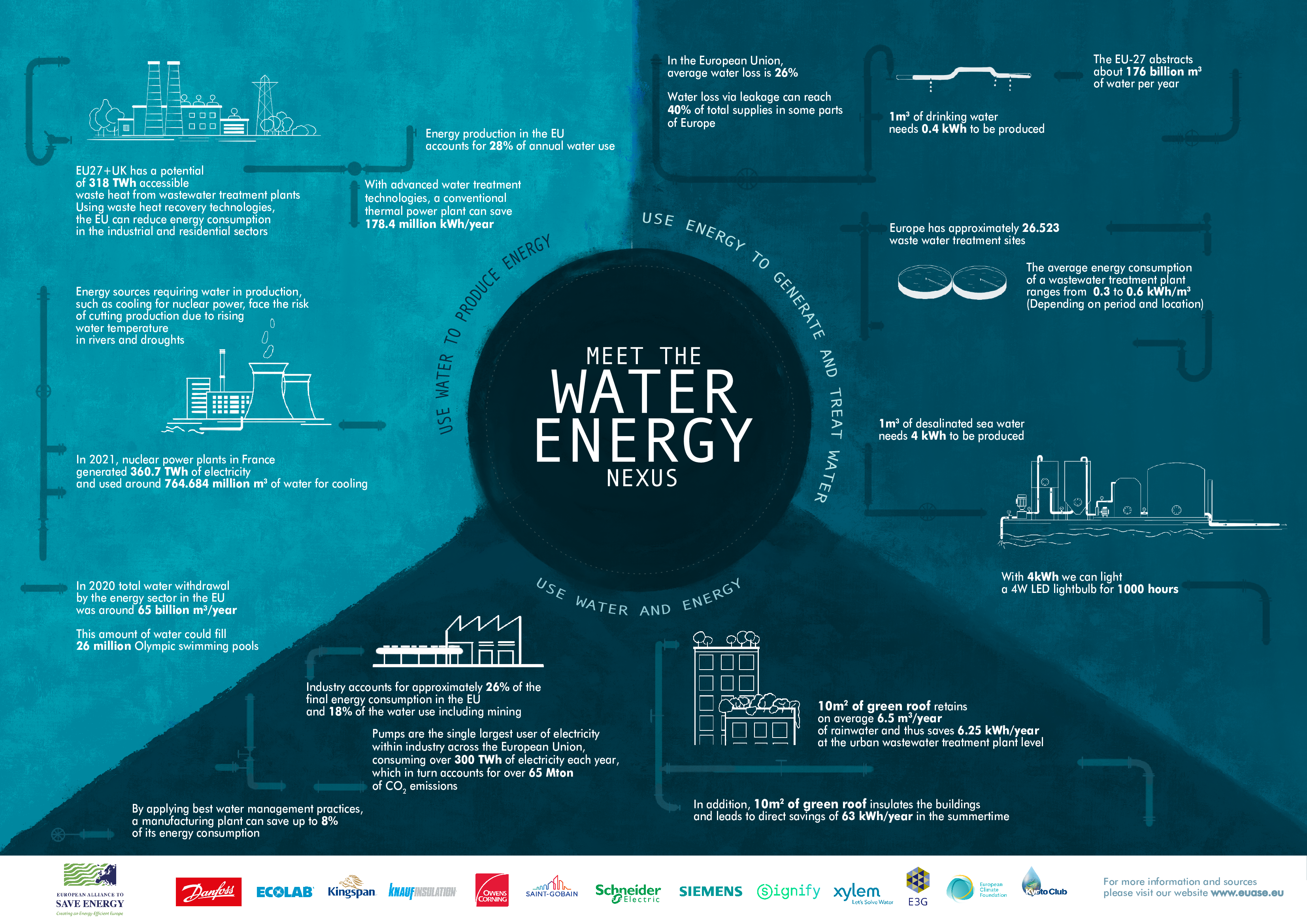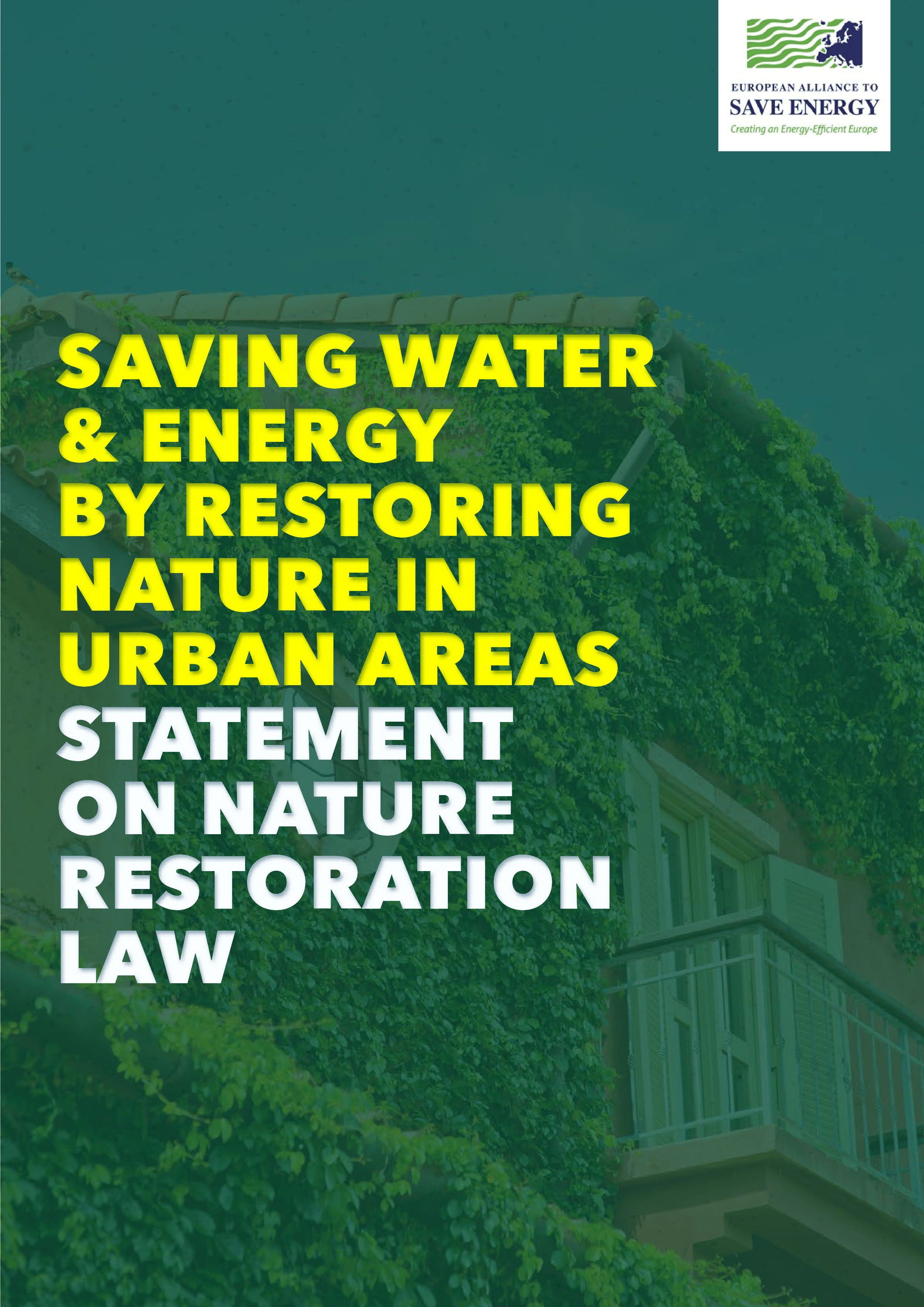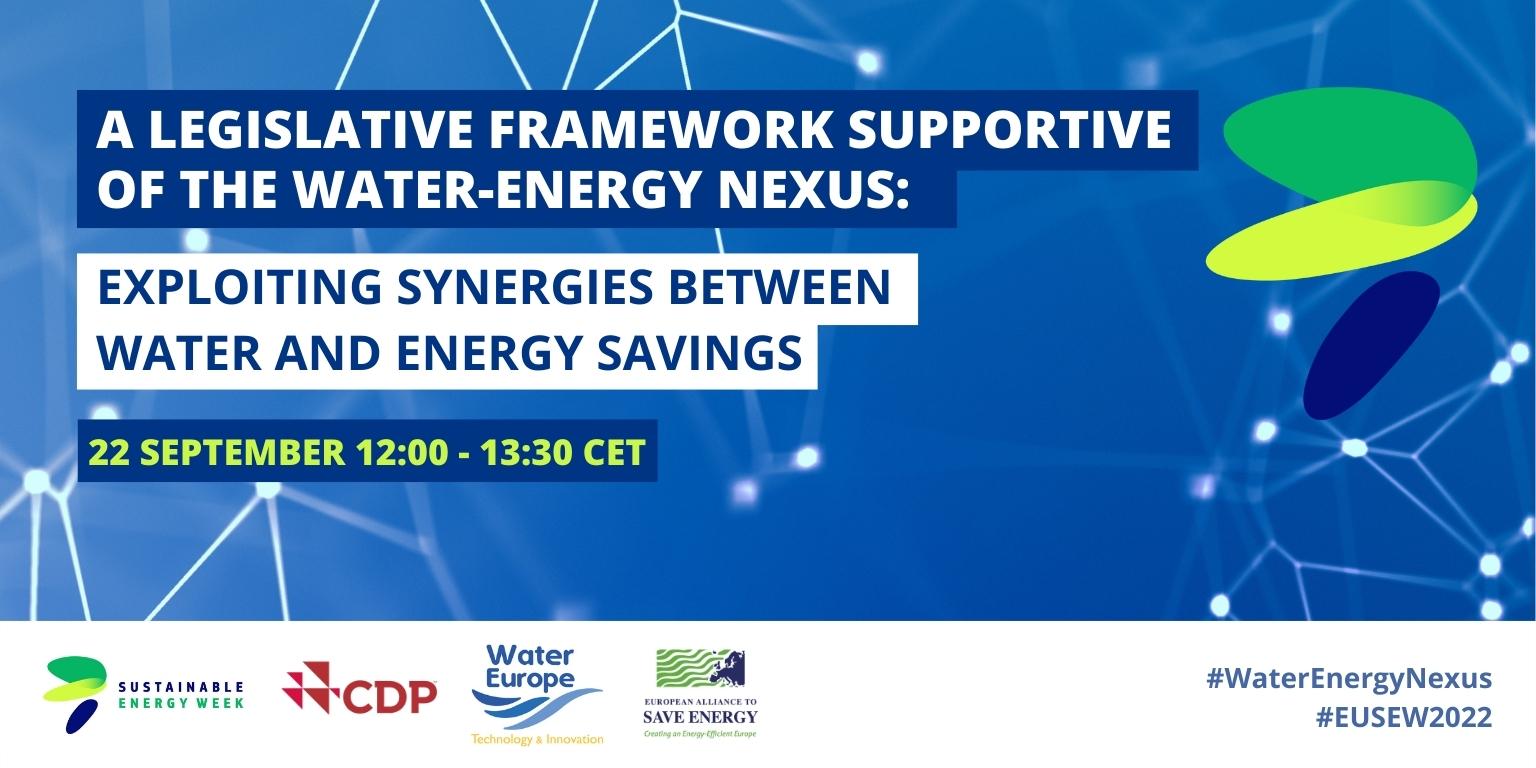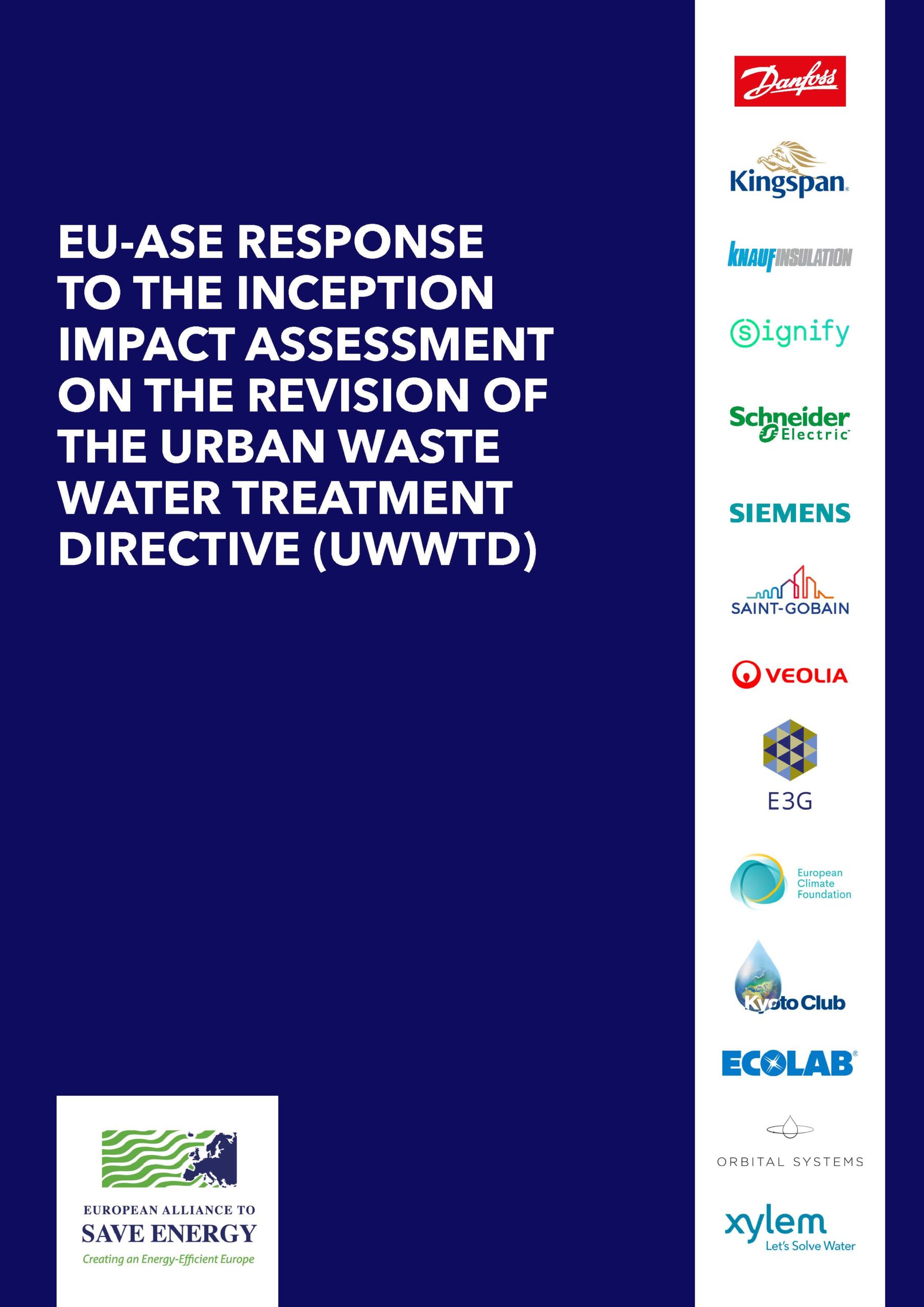Meet the Water-Energy Nexus
We are thrilled to share our latest publication, an informative infographic highlighting the Water-Energy Nexus. In today’s climate and energy crisis, understanding the water-energy nexus is crucial for driving substantial savings in both resources while reducing emissions and enhancing European industry competitiveness.
Meet the Water-Energy Nexus infographic, developed by The European Alliance to Save Energy with the support of our members.
Understanding the interdependent relationship between water and energy is crucial as we strive for sustainability and to combat the challenges of climate change. In these times of multiple crises, Europe is currently facing both energy and water crises. It is imperative that we join forces to address these challenges collectively. Recognizing the significance of the water-energy nexus, it is crucial for Europe to take decisive action and prioritize these issues without delay.
The infographic highlights:
– the connection between water consumption and produce energy
– the energy used to abstract and treat water
– the interlink between energy and water in sectors such as buildings and industry
This visual is a great tool to raise awareness about the water-energy nexus in relation to upcoming key moments of the ordinary legislative procedure related to:
– Industrial Emissions Directive (IED)
– Urban Wastewater Treatment Directive (UWWTD)
– Nature Restoration Law (NRL)
View the full infographic here
View section 1 in detail
View section 2 in detail
View section 3 in detail





